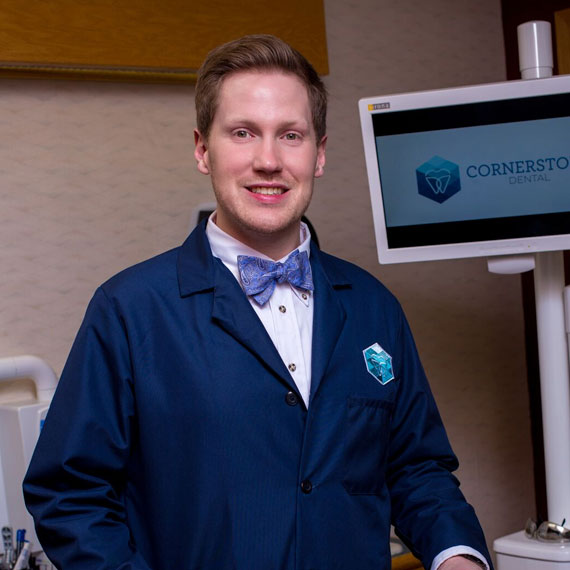When your pregnant your body goes through a lot of changes, like producing larger quantities of the hormones estrogen and progesterone. These changes affect virtually all of your body’s functions, and they can lead to problems with your teeth and gums, like cavities and gingivitis if proper oral care isn’t maintained.
The Teeth While Pregnant
While your pregnant tooth decay can be common for several reasons. One of the big issues is that hormonal changes cause nausea and vomiting in many women.
As a result, the teeth are exposed to more acid, so the enamel layer erodes and eventually breaks down. Don’t brush your teeth right after you’ve vomited. Instead, rinse your mouth with a mixture of water and baking soda or diluted mouthwash.
Another potential problem may be caused by food cravings. Many women have food cravings in the first trimester and throughout their pregnancy that can lead to a higher level of sugar on the teeth. If you find yourself with a sweet tooth, brush your teeth after indulging to remove the sugars from sitting on the teeth.
The Gums While Pregnant
Some pregnant women’s gums also bleed more easily due to hormonal changes, so they avoid brushing or flossing. Gingivitis is a disease that makes the gums bleed, swell, and look red.
This gum irritation typically occurs because there is too much plaque on the teeth, which turns into hard tartar that contains harmful bacteria. The bacteria irritate the gums around the base of the teeth, so the gum becomes swollen and painful.
This condition is common during pregnancy and is usually temporary. Around 40% experience gingivitis and benign gum tumors because their gums are more sensitive to irritation. Temporary gingivitis should clear up after your baby is born.
Since gingivitis is caused by plaque, continue cleaning the teeth at least twice a day. Taking multivitamin supplements can also help to boost your vitamin and mineral levels and help with this condition; however, be sure to speak with your doctor before taking anything new.
How to Protect the Teeth While Pregnant
Although some women are more likely to experience dental problems while pregnant, you can lower your risk by following a good oral care routine. Eat foods that support your body’s function and avoid substances that harm your teeth and overall health.
The Optimal Oral Routine
Keep brushing and flossing your teeth daily while you’re pregnant. If your mouth bleeds frequently or your gums feel irritated, use a soft-bristled brush and gentle toothpaste. You can also gargle with salt water or mouthwash to remove any remaining bacteria and food particles.
Foods to Eat
Make sure you get 1200-1500 mg of calcium every day while you’re pregnant. This is necessary for the healthy growth of the baby and the maintenance of your oral health. Some foods that are particularly high in calcium include leafy green vegetables and dairy products.
Eat lots of fruit, vegetables, cereal, and eggs to make sure your body gets the nutrients it needs. Focus on foods that contain vitamins A and D because they help your body form enamel. Some great options are tomatoes, red bell peppers, and any foods fortified with vitamin D.
Because there aren’t many natural vitamin D options, most pregnant women benefit from taking a supplement. If you’re not sure whether you’re getting enough nutrients, ask your primary physician to perform a blood test.
Substances to Avoid
If you have strong sugary cravings, try to eat your sweet treat during mealtimes and brush your teeth immediately afterward instead of having frequent sugary snacks during the day. Although dried fruit might seem healthy, it isn’t a great option during pregnancy due to its high sugar content.
Gingivitis is much more common in people who consume nicotine and large quantities of alcohol. Stop smoking, and don’t drink while you’re pregnant. Not only does alcohol affect your teeth, but it can also affect the health of your baby.
Are Dental Treatments Safe When Pregnant?
Most dental treatments are safe while pregnant. If you are concerned about a procedure, speak to your dentist and they can let you know whether it’s safe to proceed.
Regular dental cleanings, tooth extractions, and dental fillings are all safe to do while pregnant. Anesthesia and local anesthetic as well as x-rays are also ok while pregnant; however, most dentists will wait until after the first trimester as an added safety precaution.
It’s completely normal for your teeth and gums to experience some changes while your pregnant. Hormonal changes, nausea, cravings, and other symptoms can cause tooth sensitivity, cavities, and even temporary gingivitis.
Maintaining your current oral care routine is essential to mitigating any serious dental issues. Talk to your dentist right away if you start to experience any major dental issues.
Are You Suffering With A Toothache In The Martinsburg Area?
If you are suffering with a toothache you should speak with an experienced dentist as soon as possible. Please feel free to contact us online or call our Martinsburg, West Virginia dental office directly at 304.267.6059 to schedule your appointment. We provide a wide range of general dentistry care as well as more involved dentistry services for patients throughout the Martinsburg area and look forward to you joining the Cornerstone Dental family.


